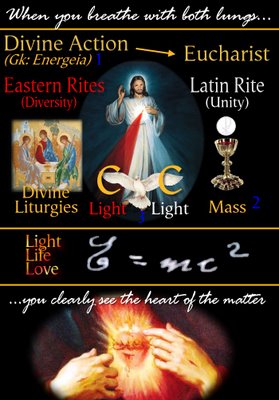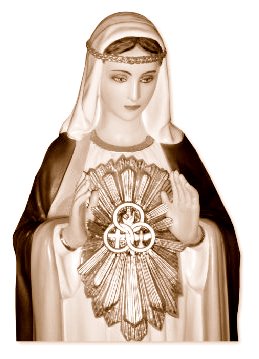
J.M.J. + O.B.T. + M.G.R.*
What shaped Einstein’s early religious views?
In his Autobiography, Einstein writes that, as a child, his nonobservant Jewish parents sent him to the nearest good school, which was, as it happened, a Catholic school. He was, throughout primary grades, brought up in the spirit of a Catholic school by the nuns, and he adored it. But some family members thought that as a child he also should know something about the Jewish religion, and so privately at home he got some ideas about Judaism as well.
Being already Einstein, he somehow knew how to fuse these two traditions, which are quite different in many ways. He was so happy about these ideas that he wrote in his Autobiography that he discovered his “first religious paradise” through the teaching of both traditions.
At one point he would compose songs in praise of God and sing them as he went to school as a small child. At age 12, believe it or not, he convinced his parents that they should keep to some degree a kosher household. Quite a boy!
+ + +
Dr. Einstein, though a Jew, had to attend a Catholic school where he grew up and it did have a profound impact on him.
Here is a quote from Dr. Einstein..."The most beautiful and most profound emotion we can experience is the sensation of the mystical. It is the sower of all true science. He to whom this emotion is a stranger, who can no longer wonder and stand rapt in awe, is as good as dead. To know that what is impenetrable to us really exists, manifesting itself as the highest wisdom and the most radiant beauty which our dull faculties can comprehend only in their most primitive forms—this knowledge, this feeling is at the center of true religiousness.""
My religion," he says, "consists of a humble admiration of the illimitable superior spirit who reveals himself in the slight details we are able to perceive with our frail and feeble minds. That deeply emotional conviction of the presence of a superior reasoning power, which is revealed in the incomprehensible universe, forms my idea of God."
He most assuredly was not a Buddist...nor was he a Christian, but no one could accuse him of being an atheist.
I agree with you wholeheartedly about science and religion...it was the Catholic church that founded the great universities, and many Jesuit priests were great scientists (read the history of genetics, or geologty etc.) Also, people should really read what the church's stance on Gallileo was...you will be very surprised. Thanks. Dana W.
dana wheeler at
9:48AM on Oct 9th 2007
+ + +
From Mark Shea's blog, Catholic and Enjoying It!
Tuesday, May 13, 2008
His parents were not religious but he attended a Catholic primary school and at the same time received private tuition in Judaism. This prompted what he later called, his "religious paradise of youth", during which he observed religious rules such as not eating pork. This did not last long though and by 12 he was questioning the truth of many biblical stories."
The consequence was a positively fanatic [orgy of] freethinking coupled with the impression that youth is being deceived by the state through lies; it was a crushing impression," he later wrote.
In his later years he referred to a "cosmic religious feeling" that permeated and sustained his scientific work. In 1954, a year before his death, he spoke of wishing to "experience the universe as a single cosmic whole". He was also fond of using religious flourishes, in 1926 declaring that "He [God] does not throw dice" when referring to randomness thrown up by quantum theory.
His position on God has been widely misrepresented by people on both sides of the atheism/religion divide but he always resisted easy stereotyping on the subject.
That's because Einstein's religion, such as it was, was a vague and cloudy thing, the smoke left over after his adolescent spasm of atheism burned down his Jewish faith. That faith was meant to lead, of course, to Christ. That was the point of the Old Testament revelation. But Einstein was denied that and his boyhood faith could not withstand the atheist winds that were blowing in his culture. So he concluded it was a deception. But he could not get past the basic impression of some sort of Mind at work in the universe. So we get the vaguely pantheistic notions that suffuse his work, neither recognizably biblical (except perhaps a reminder of Romans 1:20) nor very satisfying to atheists.
It is worth noting that Einstein was fascinated with the Catholic Church, particularly with the doctrine of transubstantiation. I always hold out hope that his openness to reality was the doorway in by which the Holy Spirit finally saved him.
Sincerely yours in Jesus and Mary,
Mike Rizzio, SOLT
Imitate Mary
Become like Jesus
Live for the Triune God
Seek the Light of Our Lord Jesus Christ
See you on the High Ground!If you have a few minutes please go to the following sites
and see what I have been compelled to work on since 2004.
http://soltlaity.org/breadoflife.htm
http://soltlaity.org/slideshow.htm
I will attempt to answer any and all inquiries at jmjriz@aol.com.
+++
* - J.M.J. + O.B.T. + M.G.R. stands for: Jesus, Mary and Joseph;
O Beata Trinitas; St. Michael, St. Gabriel and St. Raphael































1 comment:
I recently noticed that you had commented on my blog a year ago regarding a post on E=mc2. A year later and I finally read your comment, and I perused your links. Very interesting stuff you have been working on. What is the impetus for your interest in E=mc2? I will have to email you sometime. My curiosity in the formula came out of nowhere but soon became a nagging fixation a few years ago, and I have yet to really delve into much less explore what I do believe what God was trying to show me. Interesting thoughts indeed.
Post a Comment